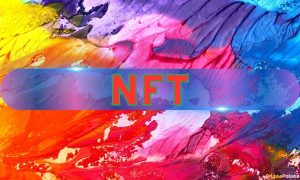Not All Protocols Are Created Equal

[ad_1]
One should not underestimate the growth potential of the decentralized

 decentralized [email protected] Event Organiser finance industry. However, there are some concerns as to whether regulation is necessary and, if so, how it would affect the future DeFi industry. It is not unlikely to think regulation will be a tangible option but not necessarily a requirement.
decentralized [email protected] Event Organiser finance industry. However, there are some concerns as to whether regulation is necessary and, if so, how it would affect the future DeFi industry. It is not unlikely to think regulation will be a tangible option but not necessarily a requirement.
The Current State of DeFi Regulation
Following some recent developments in the decentralized finance section, the demand for regulation has become much more outspoken. Several protocols have come and gone – either due to rug pulls, thefts, hacks, etc. – and left investors and speculators without money. However, there are many protocols that do not suffer from such incidents, and they keep bringing value to their customers.
Most people agree that some degree of regulation may be required. Many DeFi protocols do not maintain a non-custodial approach. More specifically, they will take control of user funds, and people have to trust these providers to conduct proper business etiquette. For instance, customer and company funds segregation would be a welcome requirement for such custodial providers. Although some protocols do this by default, it would be beneficial to see things improve.
However, one also has to acknowledge not all DeFi protocols are equal. Some protocols pose lower or different risks than others, similar to how TradFi companies A and B are not necessarily two peas in the same pod. There are different tiers of risk in traditional and decentralized finance. That may indicate there will be various tiers of regulation in DeFi moving forward, and some projects may not need regulation at all.
Providers that want to establish more credibility and clout should opt for the regulatory approach regardless of the service they provide. However, not everyone has the budget or expertise to pursue licenses, and those projects should still be allowed to exist either way. There is a difference between instilling good practices in the industry and smothering innovation by over-regulating.
DeFi Compliance As A Service
One possible solution may be offered by Phree, a team that aims to bring more legitimacy to decentralized finance. More specifically, the team works with Swiss regulators, Mastercard APAC, and other entities to address the lack of regulation, accountability, and security. Not only will Phree help improve existing DeFi protocols, but it also enables a way for TradFi companies to explore decentralized finance opportunities.
Moreover, the protocol introduces a framework to build DeFi solutions adhering to the necessary regulations. The team dubs this “reverse decentralization”, and it is a non-invasive approach to help developers and teams explore this option. If decentralized finance is to be taken into the mainstream, compliance will prove essential. Incorporating risk control, security, KYC/AML procedures, and anti-price manipulation measures are just some ideas to explore.
The introduction of regulation may lead to fewer countries banning decentralized finance altogether. China has “banned” DeFi, and Russia may take a similar approach. Other regions want to maintain a favorable approach through regulatory means, as the industry still presents “limited risks” to mainstream finance.
Closing Thoughts
It makes sense to slap regulation on companies providing lending and borrowing or high-risk financial services. However, things get a bit different when it comes to yield farming, liquidity provisioning, etc. Those segments are likely to remain unregulated – for now – assuming they are accessible through non-custodial providers.
There is still much to figure out, as regulation is a broad concept when intermediaries may not always be present.
[ad_2]
Source link













